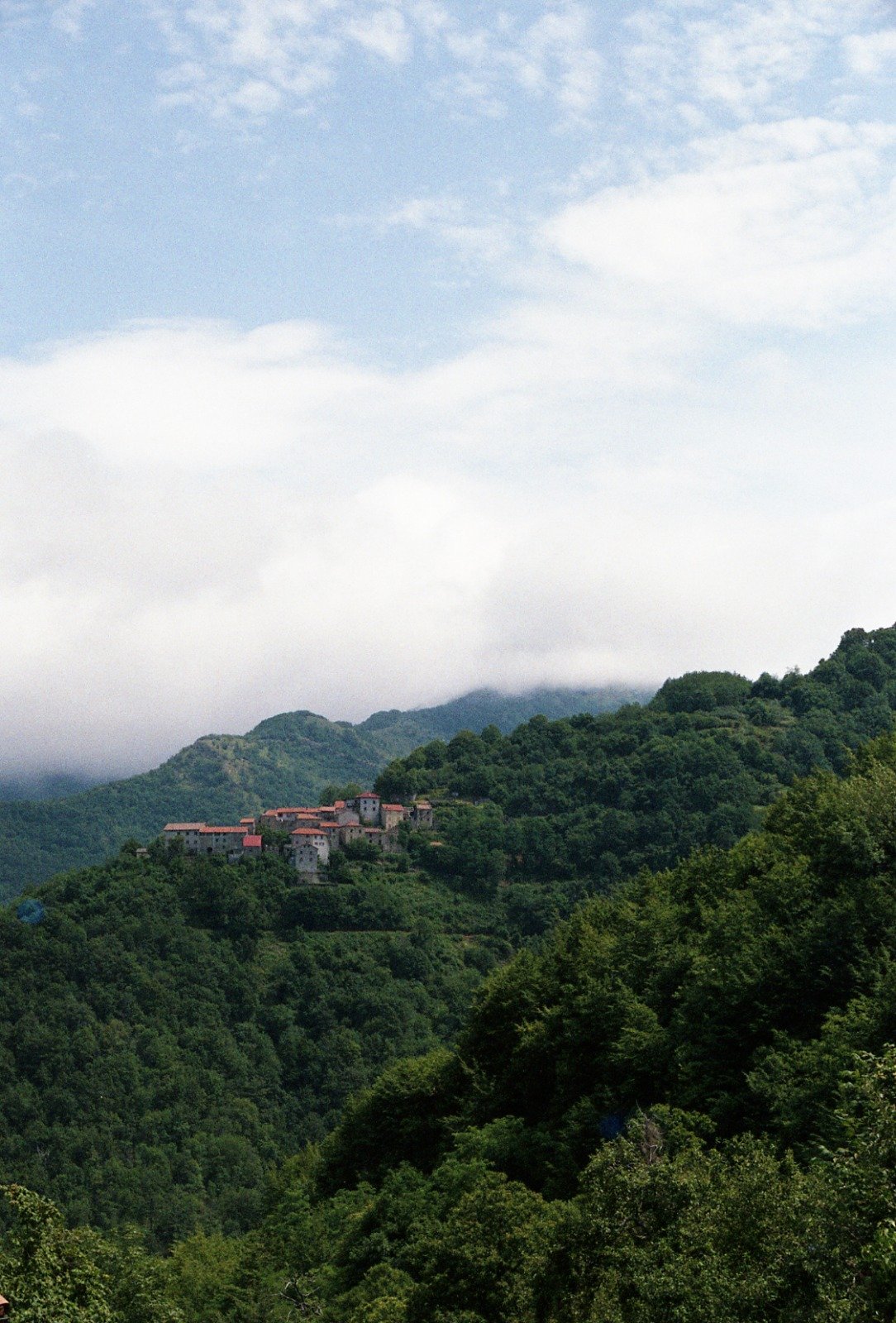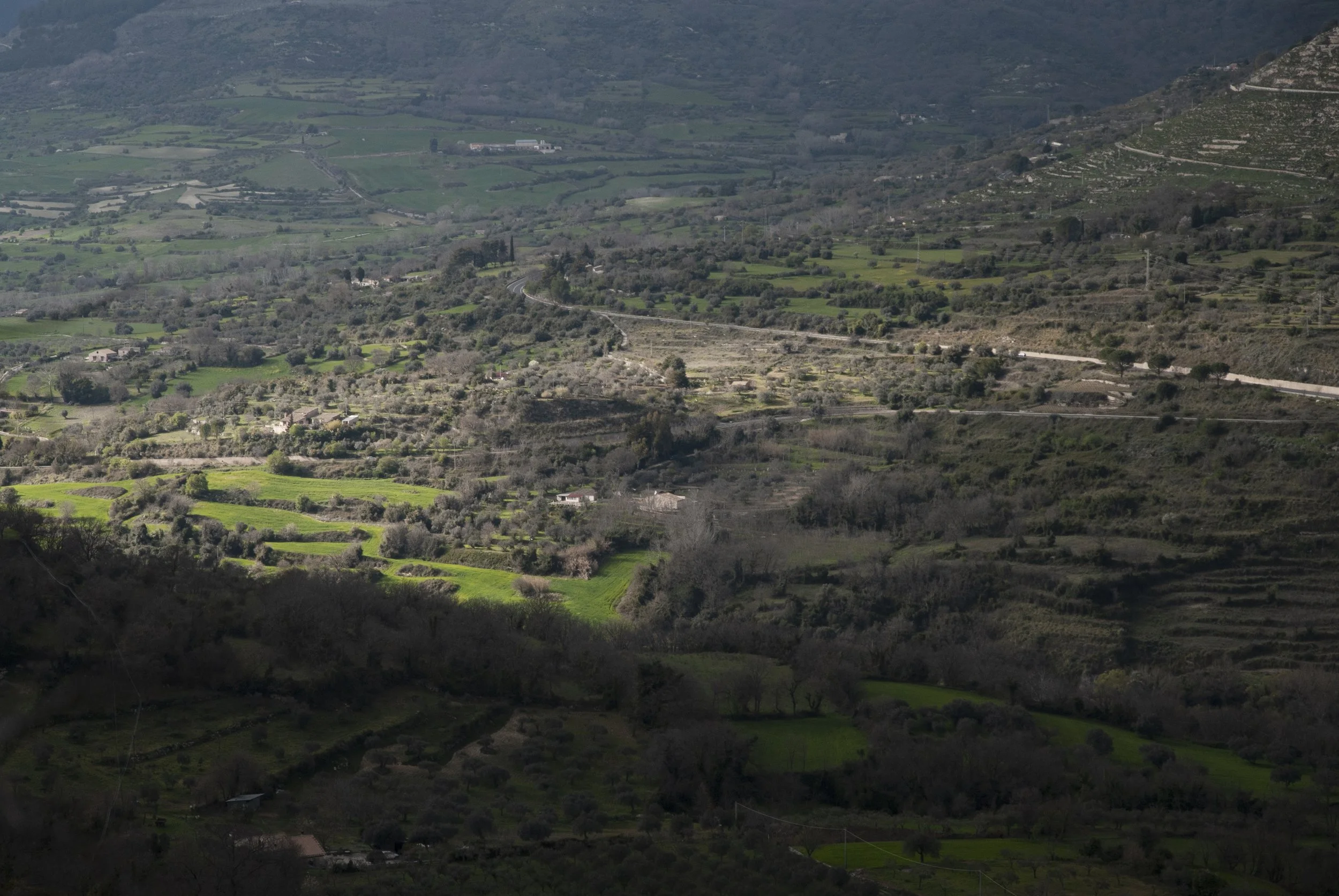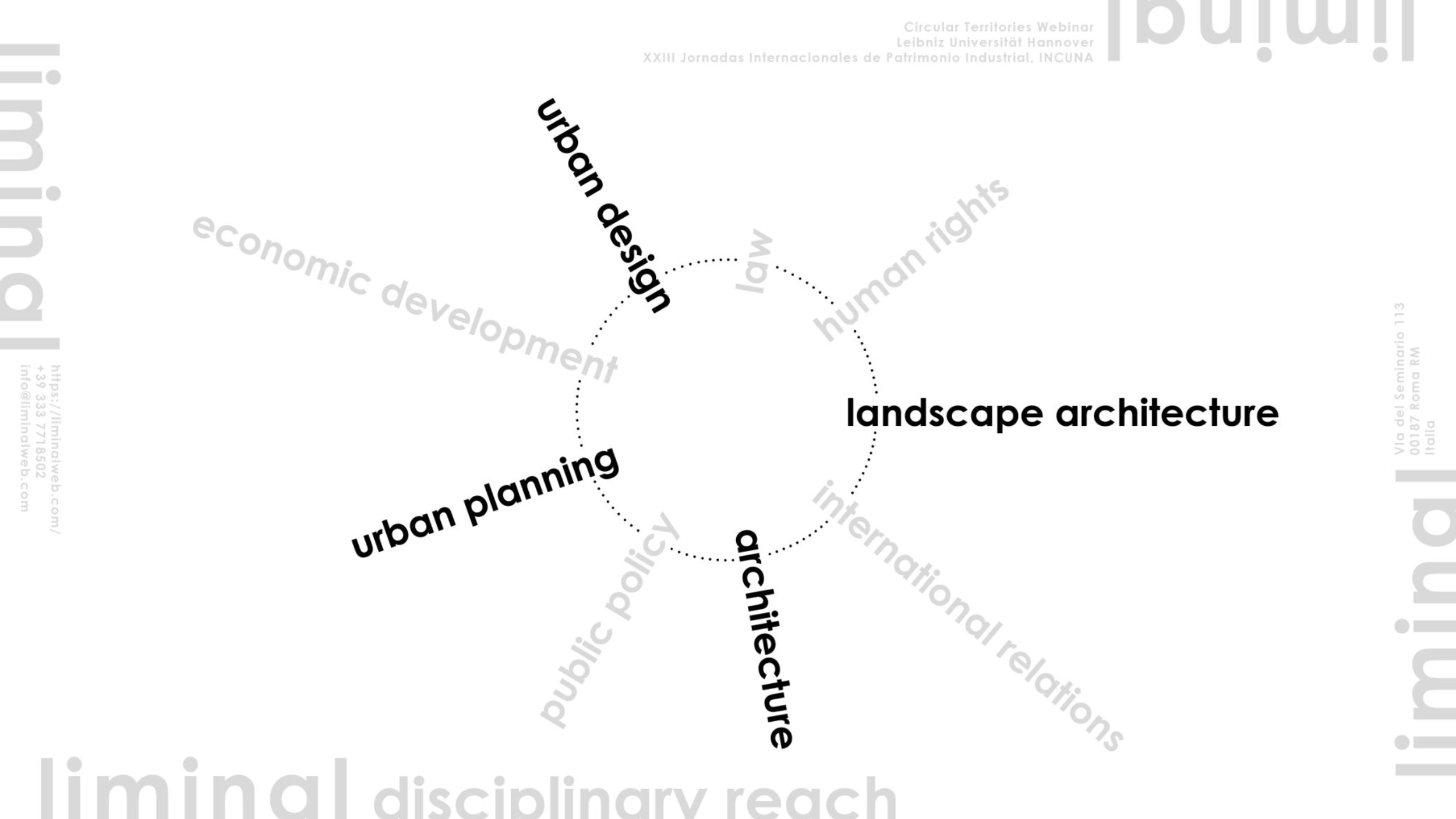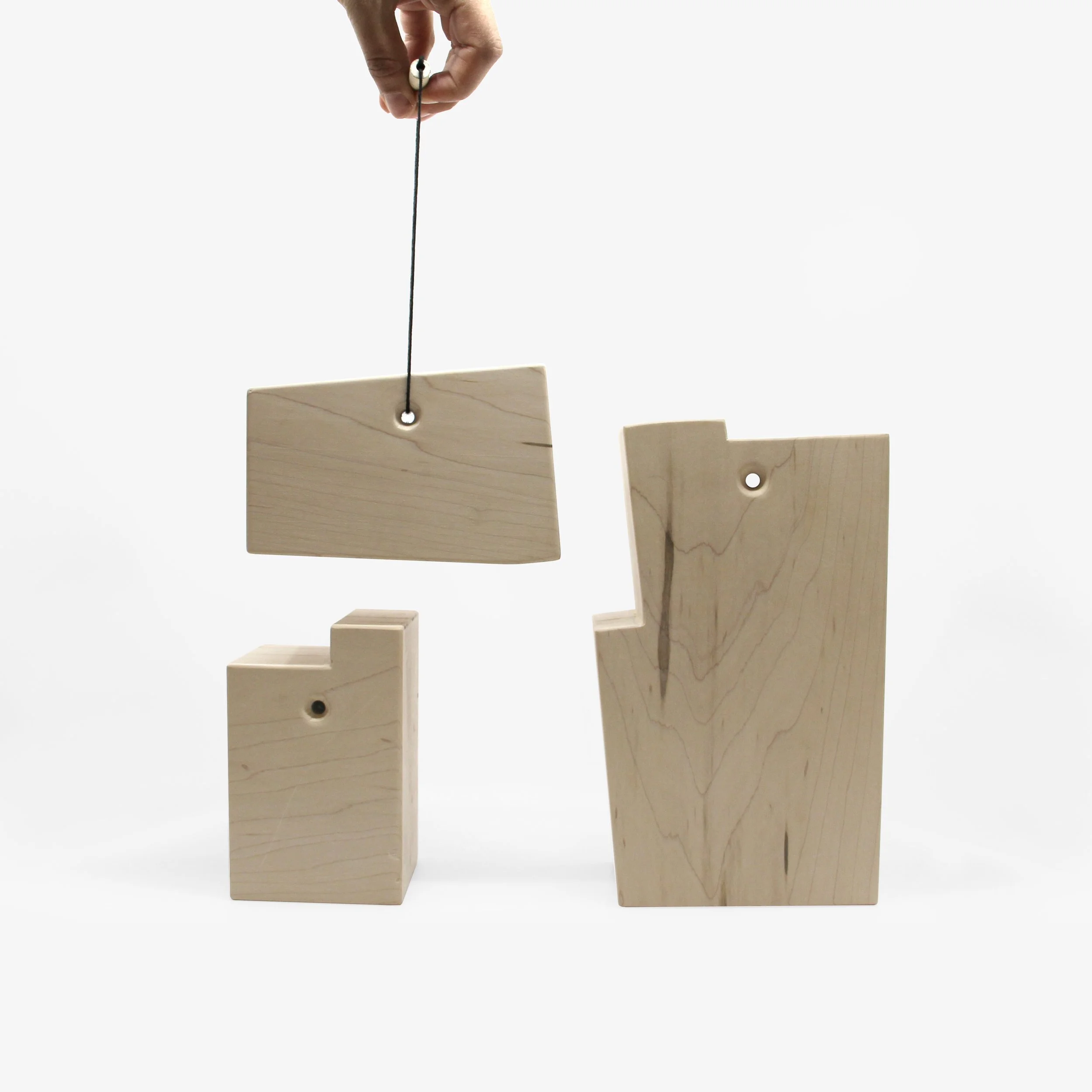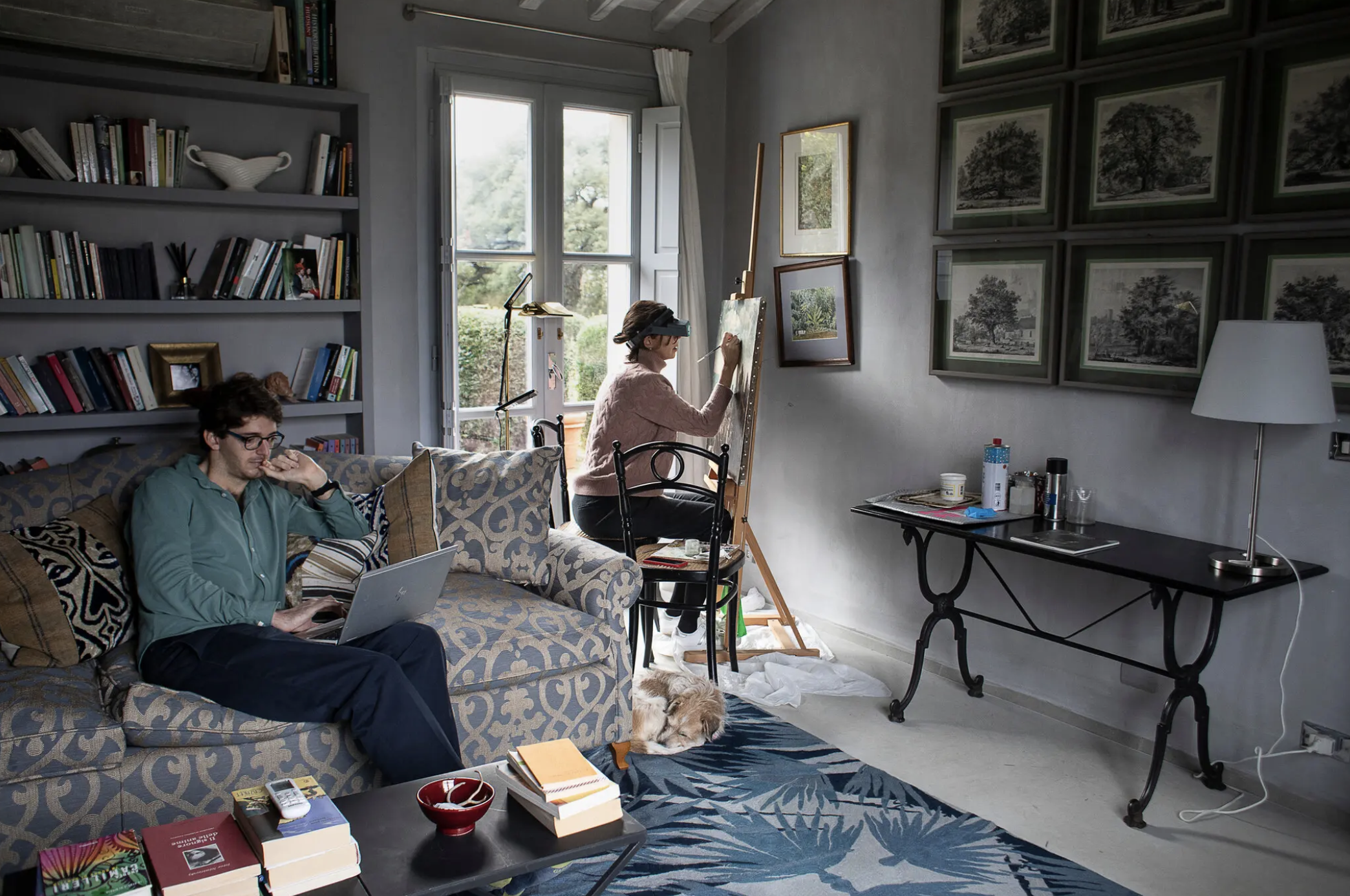updates
Huffington Post Covers Upcoming Liminal Project in Liguria
Huffington Post covers how Liminal is developing a new concept of tourism throught the regenerations of small towns in rural italy.
The international news website narrates how Liminal is developing a new concept of tourism throught the regenerations of small towns in rural italy.
Liminal Fellowship per Studenti Italiani
Partecipa a un laboratorio intensivo nella regione Liguria sostenuto dalla Fondazione Compagnia di San Paolo, dalla Regione Liguria e dal Comune di Valbrevenna.
Partecipa a un laboratorio intensivo nella regione Liguria sostenuto dalla Fondazione Compagnia di San Paolo, dalla Regione Liguria e dal Comune di Valbrevenna.
28 agosto – 15 settembre
Siamo lieti di annunciare l'apertura del periodo di candidatura per Liminal Lab Valbrevenna, un'iniziativa in collaborazione con la Pontificia Universidad Católica de Chile, il Parco Naturale Regionale Antola e il Comune di Valbrevenna. Con il sostegno di Fondazione Compagnia di San Paolo, il patrocinio della Regione Liguria, l'iniziativa di quest'anno invita studenti e neolaureati italiani provenienti dai campi dell'architettura, dell'architettura del paesaggio e dell'urbanistica a partecipare in un'esperienza di lavoro sul campo ad alta intensità. L’obiettivo del laboratorio sarà quello di individuare strategie innovative in grado di affrontare le criticità causate dal fenomeno dello spopolamento e l'assenza di risorse, al fine di promuovere uno sviluppo socio-economico per la zona di Valbrevenna. Questo sarà reso possibile grazie auna serie di attività di ricerca sul campo, incontri con la comunità locale e condivisione di idee e progetti per lo sviluppo socio-economico della zona.
Carsi, Valbrevenna
Il programma si svolgerà nei paesi della Valbrevenna, che circondano il Parco Regionale dell'Antola in Liguria a circa 40 km da Genova. Dal 28 agosto al 15 settembre, gli studenti ammessi lavoreranno al fianco di Liminal, gli studenti della Pontificia Universidad Católica de Chile e il professore Dino Bozzi, immergendosi nel territorio e dialogando direttamente con gli stakeholder locali e i membri della comunità. Il laboratorio avrà base a Carsi, uno dei paesi di quest’area caratterizzata da paesaggi montuosi, fitti boschi, piccoli borghi e una ricca tradizione gastronomica e culturale.
Durante il laboratorio, gli studenti avranno l'opportunità di familiarizzare con la metodologia utilizzata da Liminal, focalizzata sulle tecniche di progettazione partecipativa, lavorando in stretta collaborazione con le principali entità territoriali. Gli studenti saranno impegnati in attività di mappatura delle strade e delle attività commerciali locali, da pubblicare online su piattaforme di wayfinding, al fine di incrementare l'accessibilità dell'area e l'attività economica. Successivamente, i dati raccolti saranno utilizzati per sviluppare una visione strategica per il territorio circostante il Parco Naturale dell'Antola, che individui progettazioni specifiche in grado di rafforzare l’offerta territoriale. L'obiettivo del laboratorio è contribuire a contrastare l'emigrazione, valorizzare il patrimonio culturale e il tessuto urbano, e incentivare l'attività economica.
Liminal coprirà le spese di trasferta tra Genova a Valbrevenna, alloggio, e trasporto per la durata del laboratorio. Il laboratorio sarà inoltre dotato di spazi di lavoro, internet satellitare, e le attrezzature necessarie per le attività di mappatura avanzata che verranno intraprese.
I candidati idonei devono essere attualmente iscritti ad un corso Magistrale o Master in Architettura, Architettura del Paesaggio o Progettazione Urbana presso un Ateneo italiano o neolaureati.
Per ulteriori informazioni su Liminal e su questa iniziativa, visita il nostro sito web www.liminalweb.com o contattaci all'indirizzo info@liminalweb.com . Ti invitiamo anche a guardare il documentario del Liminal Lab dello scorso anno, Rebuilding the Edge 2022 qui.
Announcing the 2023 Liminal Fellows
The Liminal team is delighted to announce the selection of Maren Johnson and Issam Azzam as the 2023 Liminal Fellows. Chosen from a competitive pool of applicants from around the globe, Maren and Issam will bring a unique and multidisciplinary perspective to Liminal Lab Monti Prenestini, which will run from July 3rd to August 11th.
Maren Louttit Johnson and Issam Azzam to Join Liminal Lab Monti Prenestini
The Liminal team is excited to announce the selection of Maren Johnson and Issam Azzam as the 2023 Liminal Fellows. Chosen from a competitive pool of applicants from around the globe, Maren and Issam will bring a unique and multidisciplinary perspective to Liminal Lab Monti Prenestini, which will run from July 3rd to August 11th.
Liminal Fellow Maren Louttit Johnson
Maren Louttit Johnson, a graduate of Cornell University, possesses a background in ecology, biodiversity, and landscape architecture. Maren’s passion for finding opportunities in rural and overlooked landscapes through creative and thoughtful relationship-building makes her highly aligned with the goals of the Liminal Lab.
Issam Azzam, a Harvard Graduate School of Design student, brings expertise in data visualization, biology, and landscape architecture that will be essential in this year’s iteration of the program. Both fellows have demonstrated strong dedication to facing contemporary social and environmental challenges using their unique skillsets and perspectives.
Liminal Fellow Issam Azzam
Through their participation in Liminal Lab Monti Prenestini, Maren and Issam will engage with local stakeholders and community members in the towns of Castel San Pietro Romano, Rocca di Cave, Capranica Prenestina, and Guadagnolo this summer. They will collaborate with a team of eight students from the Massachusetts Institute of Technology (MIT) to create a cohesive web platform that showcases the opportunities and challenges of the territory.
The team will develop a digital identity for the area that they will study, that reinterprets the role and meaning of these evolving landscapes today. They will study and propose a cohesive identity for the municipalities of Monti Prenestini through an intensive participatory process. The initiative is part of "I Borghi Maestri dei Monti Prenestini–Isole di Rigenerazione '' regeneration project, funded by the European Union's NextGenerationEU program. The NextGeneration EU project aims to strengthen tourism activity, support the creation of new jobs and the increase of residential population through a combination of 27 initiatives including Slow Food, Associazione Borghi più belli d’Italia, Tor Vergata University, South Working, Liminal and other stakeholders and organizations.
We would like to thank everyone who applied to the fellowship and welcome Maren and Issam to the Liminal team.
To stay updated on the latest news and work of the Liminal Fellows, please follow our official website and social media channels!
Introducing Liminal Fellowships
Empowering the Future of Landscape Architecture in Rural Italy
Empowering the Future of Landscape Architecture in Rural Italy
Liminal, an Italian non-profit organization committed to the transfer of knowledge and capacity building for public and nonprofit entities, is excited to announce the launch of the Liminal Fellowships funded by the European Union's NextGenerationEU program.
This year’s initiative aims to support talented landscape architecture students in joining the Liminal Lab Monti Prenestini in the region of Lazio through a partnership with the Municipality of Castel San Pietro Romano–lead partner–and the Municipalities of Capranica Prenestina and Rocca di Cave.
Valle delle Cannuccette, Monti Prenestini
The Liminal Fellowship will be awarded to one or two exceptional landscape architecture students, who will have the opportunity to work alongside eight students from the Massachusetts Institute of Technology (MIT), with expertise in territorial mapping, graphic design, data visualization, computer science and business. The selected landscape architecture student will embark on a six-week, high-intensity fieldwork experience from July 3rd to August 11th, engaging with local stakeholders and communities of the towns of Monti Prenestini to visualize a unified identity for the territory.
Liminal Fellows will have the unique opportunity to contribute with their landscape architecture expertise, integrating the living and built environments at various spatial and temporal scales. In collaboration with students from other disciplines, fellows will develop a cohesive web platform that documents and narrates a novel identity of the territory, suited to the 21st century.
Liminal will cover travel expenses within Europe and lodging for the duration of the Liminal Lab program, as well as reimbursement for living expenses incurred. Eligible applicants must be currently enrolled in a Master of Landscape Architecture program and demonstrate proficiency in data collection and mapping techniques, GIS software, and visual communication. While there are no language requirements, preference will be given to individuals with basic knowledge of the Italian language.
Applications are open now and must be submitted by May 21st, 2023. Finalist interviews will be held between May 21st and May 26th, with successful applicants announced no later than May 31st. Further information about the fellowship and program are provided in the application form FAQ.
If you are interested in this opportunity and would like to know more about it you can reach out to info@liminalweb.com, consult the Q&A below and our website. You can also watch the documentary from last year’s Liminal Lab, Rebuilding the Edge 2022 here.
Liminal Signs Next Generation EU Partnership
Liminal partners with the Municipality of Castel San Pietro Romano to boost cultural regeneration in Italy's small historic towns
Liminal partners with the Municipality of Castel San Pietro Romano to boost cultural regeneration in Italy's small historic towns
Image Credit: GAL Castelli Romani e Monti Prenestini
As a non-profit organization dedicated to contributing to the sustainable development of rural areas of Italy, we are thrilled to announce our exciting new partnership with the Municipality of Castel San Pietro Romano, the Lead Partner, as well as the Municipalities of Capranica Prenestina and Rocca di Cave. Together, Liminal and the Municipalities will spearhead a regeneration project called "I Borghi Maestri dei Monti Prenestini–Isole di Rigenerazione," funded by the European Union's NextGenerationEU program.
Liminal President Ginevra D’Agostino and Mayor of Castel San Pietro Romano Gianpaolo Nardi shake hands after signing the agreement on March15th, 2023
This ambitious project is part of Italy's National Recovery and Resilience Plan (PNRR) and focuses on digitization, innovation, competitiveness and culture. As part of the partnership, Liminal will launch two exciting initiatives: "Liminal Lab Monti Prenestini" and "Digital Paths per i Monti Prenestini”.
The Liminal Lab Monti Prenestini initiative is a high-intensity fieldwork experience that documents, analyzes and proposes solutions for the sustainable development of small communities. Students from national and international networks will travel to the Monti Prenestini and work for six weeks there, collaborating with the locals to visualize a unified identity for the territory. This initiative will create moments of cultural exchange and social innovation that would otherwise be impossible to achieve.
Meanwhile, the "Digital Paths per i Monti Prenestini" initiative aims to give a digital life and presence to the roads and paths of the municipalities. By conducting both technical and educational activities in synergy, Liminal will create a true knowledge-sharing space, where technical tools will become civic knowledge for local communities.
"We are thrilled to be part of this project and the opportunity to contribute to the redevelopment of rural Italian territories," said Ginevra D’Agostino, Co-Founder and President of Liminal. The partnership with the Municipalities of the Monti Prenestini is a significant milestone in the organization's commitment to promoting social innovation and cultural regeneration in Italy's small historic towns and rural areas. Through the power of digital technology and an innovative fieldwork methodology, Liminal is confident that the project will create a positive socio-economic impact that will benefit local communities and the wider region. For more information, please contact us.
Rebuilding the Edge Exhibition Opens at MIT
Work from the 2022 edition of Liminal Lab in Abruzzo is now on view at MIT’s Department of Architecture
Work from the 2022 edition of Liminal Lab in Abruzzo is now on view at MIT’s Department of Architecture
Photo credit: Tristan Searight
Currently with a global population of more than 8 billion people, more and more of the world’s inhabitants are moving to cities, especially in the global south. However, as cities try hard to accommodate newcomers, despite evident infrastructural and housing challenges, one cannot help but wonder: What happens to the places left behind by people moving to cities? What is the flip side of urbanization, and how can non-urban areas reinvent themselves?
Approximately 70% of Italy’s land falls under the administrative jurisdiction of towns with populations below 6,000, which have been grappling with depopulation disinvestment, degrading infrastructure, and mounting environmental stresses. As a result, their rich cultural, historical, and natural heritage has remained on the margins, neglected and deteriorated over time.
Photo credit: Tristan Searight
In light of these pressing global challenges with local consequences, a group of Massachusetts Institute of Technology (MIT) and Harvard University graduates (Ginevra D’Agostino, Carmelo Ignaccolo and Nicolas Delgado Alcega) decided to establish Liminal, a non-profit research and design group based in Italy. Liminal operates as a decentralized research laboratory across Italy documenting, analyzing and proposing design solutions to tackle the challenges faced by rural towns in Italy. The organization tries to leverage the historical and cultural heritage of these towns, and looks at how to transform their underutilized infrastructure into spaces for research and innovation. Liminal is composed of experts from different fields, from urban planning and architecture, to economics, urban law and development. Together, they approach problems through different lenses in order to present solutions that are multi-faceted and cohesive.
Photo credit: Tristan Searight
Liminal Lab’s pilot project, Rebuilding the Edge, was a workshop offered by MIT’s Department of Architecture during the summer of 2022. The workshop is the result of a collaboration between Liminal, Fondazione FS, MIT-Italy Program (Dr. Serenella Sferza), Urban Risk Lab, Digital Structures, and several municipalities from the Valle Peligna. The initiative allowed students to join the members of Liminal and a group of experts, including Prof. Miho Mazereeuw, Prof. Caitlin Muller, on the ground for three weeks in Abruzzo and Molise to develop visions for the territories around the Ferrovia dei Parchi, a rail line rehabilitated in the last decade by Fondazione FS. Students were asked to think about mobility challenges in the region, opportunities for ecotourism in natural reserves, adaptive reuse strategies for underpopulated towns, land use strategies to recover agricultural districts, and migrant integration models. Participants lived in the depopulated town of Pettorano sul Gizio and worked from the disused Roccaraso railway station, transformed into a pop-up co-working for the occasion.
An exhibition is now on view at MIT’s Department of Architecture with the result of the intensive fieldwork and stakeholder engagement pursued throughout the entirety of the workshop. Liminal focused on setting up the conditions for students to understand the opportunities and criticalities present on the territory, from which students formulated their assessments and developed preliminary proposals that they considered had the potential for a catalytic socio-economic impact. Participants were asked to document and analyze their sites of interest, perform stakeholder interviews, and propose tangible solutions for the territory and its corresponding communities.
The exhibition is composed of six booklets that contain the work produced by each group according to a specific issue/site of focus, as well as a seventh booklet describing the overall initiative itself. The work produced during the workshop is the result of a first intensive approximation to the territory and its stakeholders. However, the reflections and ideas contained within these booklets have already provided valuable insights to the project beneficiaries. Liminal continues to work with key stakeholders to promote the visions developed throughout the workshop and construct concrete opportunities for certain aspects of them to be implemented.
Read the MIT Architecture press release
Visitor Information
Building 7, 3rd floor, Architecture Headquarters Office Hallway
77 Massachusetts Ave building 10-400, Cambridge, MA 02139
Photo credit: Tristan Searight
Exhibition and Workshop Credits
Booklet Curation and Editing
Adriana Giorgis
Angela Loescher-Montal
Sarah Lohmar
Liminal
Ginevra D’Agostino, President
Nicolas Delgado Alcega, Executive Vice President
Carmelo Ignaccolo, Vice President of Research
Elena Militello, Founding Partner
Gabriele Pizzi, Volunteer
Chiara Romano Bosch, Founding Partner
MIT
Nicholas De Monchaux, Head of MIT Department of Architecture
Miho Mazereeuw, Director of the MIT UrbanRisk Lab
Caitlin Mueller, Director of the MIT Digital Structures
John Ochsendorf, MIT Morningside Academy for Design
Serenella Sferza, MIT Italy-Program
MIT Student Participants
TJ Bayowa, John Devine, Lauren Gideonse, Adriana Giorgis, Ipshita Karmakar, Sarah Ladhani, Sojung Lee, Angela Loescher-Montal, Sarah Lohmar, Sacha Moreau, Kerri Lu, Ava La Rocca, Naksha Roy, Tristan Searight, Natasha Stamler, Alex Steelman, Alexis Spinetta, Amanda Ugorji
Liminal President Broadcasts on National Television
Ginevra D’Agostino spoke to the nation on Mediaset’s TG5 about challenges in rural communities and how Liminal is tackling them
Ginevra D’Agostino spoke to the nation on Mediaset’s TG5 about challenges in rural communities and how Liminal is tackling them
Fast Company Features Liminal Projects in Abruzzo
The American tech and innovation magazine told the story of how the Liminal community is plotting an ambition future for the Valle Peligna from an empty train station atop the Apennines
The American tech and innovation magazine told the story of how the Liminal community is plotting an ambition future for the Valle Peligna from an empty train station atop the Apennines
koozArch Interviews Liminal President
Ginevra D’Agostino discusses Liminal’s ambitions for next-generation rural areas with the preeminent design magazine featuring un-built futures
Ginevra D’Agostino discusses Liminal’s ambitions for next-generation rural areas with the preeminent design magazine featuring un-built futures
Rebuilding the Edge Now Finalist for Architizer’s A+ Awards
Liminal research to revamp rail service in Abruzzo’s rural areas enters final stages of the transportation and infrastructure prize
Liminal research to revamp rail service in Abruzzo’s rural areas enters final stages of the transportation and infrastructure prize
Liminal Executive Vice-President Lectures at University of Catania
Nicolás Delgado Alcega delivered a lecture on the work developed by Liminal with the University of Washington for Palazzolo Acreide in Sicily
Nicolás Delgado Alcega delivered a lecture on the work developed by Liminal with the University of Washington for Palazzolo Acreide in Sicily
Liminal Vice-President of Research Publishes Piece on Airbnb-Branded Revitalization Projects
Carmelo Ignaccolo’s contribution to Paesaggi Scartati analyzes opportunities and risks of the sharing economy in rural areas
Carmelo Ignaccolo’s contribution to Paesaggi Scartati analyzes the opportunities and risks of the sharing economy in rural areas
Liminal President Speaks at Progetto M.I.T.O. Conference
Ginevra D’Agostino presented Liminal’s work in Abruzzo to stakeholders of the Valle Peligna, emphasizing the importance of infrastructural interventions for rural development
Ginevra D’Agostino presented Liminal’s work in Abruzzo to stakeholders of the Valle Peligna, emphasizing the importance of infrastructural interventions for rural development
Liminal President Speaks at Circular Territories Conference
Hosted by INCUNA and Leibniz Universität Hannover, Ginevra D’Agostino presented the Liminal model to a group of young entrepreneurs and researchers addressing rural European issues
Hosted by INCUNA and Leibniz Universität Hannover, Ginevra D’Agostino presented the Liminal model to a group of young entrepreneurs and researchers addressing rural European issues
Bloomberg CityLab Talks With Liminal Vice-President of Research
The American finance journal shares Carmelo Ignaccolo’s thoughts on how data analysis can help retain remote workers in small cities and towns
The American finance journal shares Carmelo Ignaccolo’s thoughts on how data analysis can help retain remote workers in small cities and towns
Fast Company Covers Liminal Research on Drystone Terracing
The American tech and innovation magazine narrates how Liminal members are using innovative technologies to adapt ancient environmental infrastructure in Vallecorsa
The American tech and innovation magazine narrates how Liminal members are using innovative technologies to adapt ancient environmental infrastructure in Vallecorsa
Liminal Vice President of Research Speaks with Forbes
Carmelo Ignaccolo shares his experience remote working in small towns and the opportunities he sees in a post-pandemic world
Carmelo Ignaccolo shares his experience remote working in small towns and the opportunities he sees in a post-pandemic world
Liminal President Speaks at Italia Nostra Conference
Ginevra D’Agostino presented the Liminal model to a prominent panel of activists, politicians and academics working on territorial policies for rural communities
Ginevra D’Agostino presented the Liminal model to a prominent panel of activists, politicians and academics working on territorial policies for rural communities
Ginevra D'Agostino was invited on January 28th to discuss the future of Italian towns at a conference hosted by Italia Nostra, one of the most prominent not-for-profits dedicated to preserving cultural and artistic heritage in Italy. Ginevra joined a panel of distinguished academics, politicians and activists focused on rethinking the future of historic towns in the countryside, and shared the Liminal model.
New York Times Interviews Liminal Vice-President of Research
Carmelo Ignaccolo spoke with the American behemoth about his return to Sicily during the pandemic
Liminal Executive Vice-President Presents Research at UC Berkeley
Nicolás Delgado Alcega presented Liminal’s work in Vallecorsa at symposium on European rural issues
Nicolás Delgado Alcega shared Liminal’s work in Vallecorsa at symposium on European rural issues
Members of Cooperativa Agricola La Carboncella restoring collapsed drystone terraces on the valley flanks of Vallecorsa, a UNESCO Globally Important Agricultural Heritage Systems (GIAHS)




